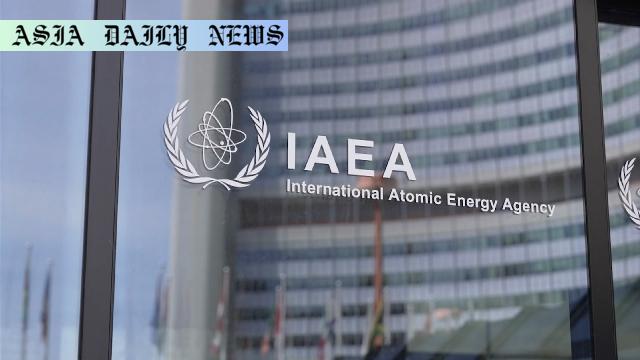Natanz: Iran reports no radiation increase despite claimed Israeli targeting of its main uranium enrichment facility.
- Natanz: Iran confirms no radiation level increase following targeting allegations.
- Israel claims to have targeted Natanz in a broader operation.
- IAEA confirms Bushehr nuclear site remains unaffected.

Overview of Israel’s Alleged Target on Natanz Nuclear Site
The recent targeting of Iran’s Natanz Nuclear Facility has sparked major global interest and concern. Israel, under Prime Minister Benjamin Netanyahu, claimed responsibility for the attack on multiple Iranian locations, explicitly highlighting Natanz as one of its primary targets. This facility, located in the Isfahan province, is a critical hub for Iran’s uranium enrichment programs. Despite these military strikes, Iranian authorities have assured the International Atomic Energy Agency (IAEA) that the radiation levels in and around this site remain unchanged, alleviating potential fears of environmental contamination or immediate safety risks.
In a public statement, the IAEA reinforced Iran’s claim, stating that the Bushehr Nuclear Power Plant, another crucial nuclear site in Iran, had not been targeted. However, the overarching implications of these strikes go far beyond environmental factors. The intensified conflict regionally and internationally underscores the fragile relations between Iran and Israel. Each party has ramped up accusations against the other, contributing to overarching concerns about global security and political stability.
Details Surrounding Iran’s Response
Following the attacks, Iran has been transparent with international agencies, including the IAEA, about the state of its nuclear facilities. The confirmation that neither the Natanz nor Bushehr sites experienced increased radiation levels is intended to dispel rumors or allay fears of nuclear fallout. This development underscores Iran’s practical approach in defusing international tensions.
From a political standpoint, Iran has characterized this assault as an act of aggression, fueling rhetoric against Israel. Meanwhile, Tehran reportedly plans counter-responses and diplomatic appeals to hold Israel accountable under international law. While no timeframe has been shared for such actions, Iran’s immediate focus seems to rest on maintaining its image as a responsible actor within global nuclear activities. Its decision to keep the IAEA informed showcases an attempt at transparency against the backdrop of escalating tensions. Yet, these narratives raise doubts about how transparent all sides are willing to remain moving forward.
Global Fallout and Concerns
This incident has profound implications beyond Middle Eastern politics. Global concerns around nuclear safety, potential radiation disasters, and the increased militarization of the region have been reignited. Nations allied with both sides are being drawn into the conversation in a bid to mitigate the situation. The involvement of the IAEA plays a pivotal role in maintaining an unbiased narrative amidst this high-stakes situation. Nonetheless, debates continue in political and scientific circles about the extent of truth behind Iran’s claims of ‘no radiation’ and Israel’s justifications for these specific strikes.
Furthermore, the actions taken by Israel may unintentionally impact future negotiations regarding Iran’s nuclear program, like the now-dormant JCPOA (Joint Comprehensive Plan of Action). Critics fear such aggressive military action could harden Iran’s stance against efforts to scale back its nuclear ambitions. Consequently, the Natanz incident exemplifies how strategic moves in geopolitics often ripple through a broader web of international relations.
Conclusion: A Turning Point?
As developments continue unfolding, Natanz and the narratives surrounding it remain at the forefront of international media. This incident’s combination of geopolitics, military strategy, and nuclear safety issues makes it a critical focal point. It challenges nations and organizations alike to respond thoughtfully. Meanwhile, the public discourse surrounding Iran-Israel relations and future negotiations over nuclear proliferation has undoubtedly entered a new phase. With both nations entrenched in their respective positions, only time will reveal whether further escalations or resolutions will follow.



Commentary
The Delicate Balance of Geopolitics and Nuclear Safety
The incident at Natanz highlights the precarious balance between military agendas and international safety concerns. Israel’s claimed strikes on Iran’s uranium enrichment site might seem like a tactical decision aimed at disabling adversarial progress. However, such actions carry profound risks that extend beyond the immediate geography of conflict. A single misstep, a radiation leak, or an alternate strategic retaliation could quickly escalate the situation into an uncontrollable crisis. This is why transparency and collaboration with global organizations such as the IAEA remains essential.
Questioning Immediate and Long-term Impacts
On one hand, Iran’s swift communication to the IAEA about stable radiation levels at Natanz showcases a potentially deliberate effort to control the narrative and highlight its compliance with international standards. On the other hand, Israel’s attack articulates a strong dissatisfaction with the lack of global action in restricting Iranian nuclear capabilities. As outside observers, the broader public cannot ignore how closely intertwined military aggression and political maneuvering are when contextualized in such scenarios.
In the broader scope of things, this incident also serves as a stark reminder: the role of non-proliferation treaties and global diplomatic frameworks is more critical than ever. World leaders must collectively ponder their commitments to nuclear safety and peace.
A Call for Diplomacy
No matter the positions of Israel or Iran, incidents such as these demand urgent calls for unity and dialogue among nations. The risks of misjudgment remain too high. While the Natanz site has fortunately avoided radiation surges, this event acts as a cautionary tale for decision-makers worldwide. A recommitment to peace-through-negotiation, rather than escalating militarization, remains the optimal solution to preventing further strained relations—and perhaps much worse.